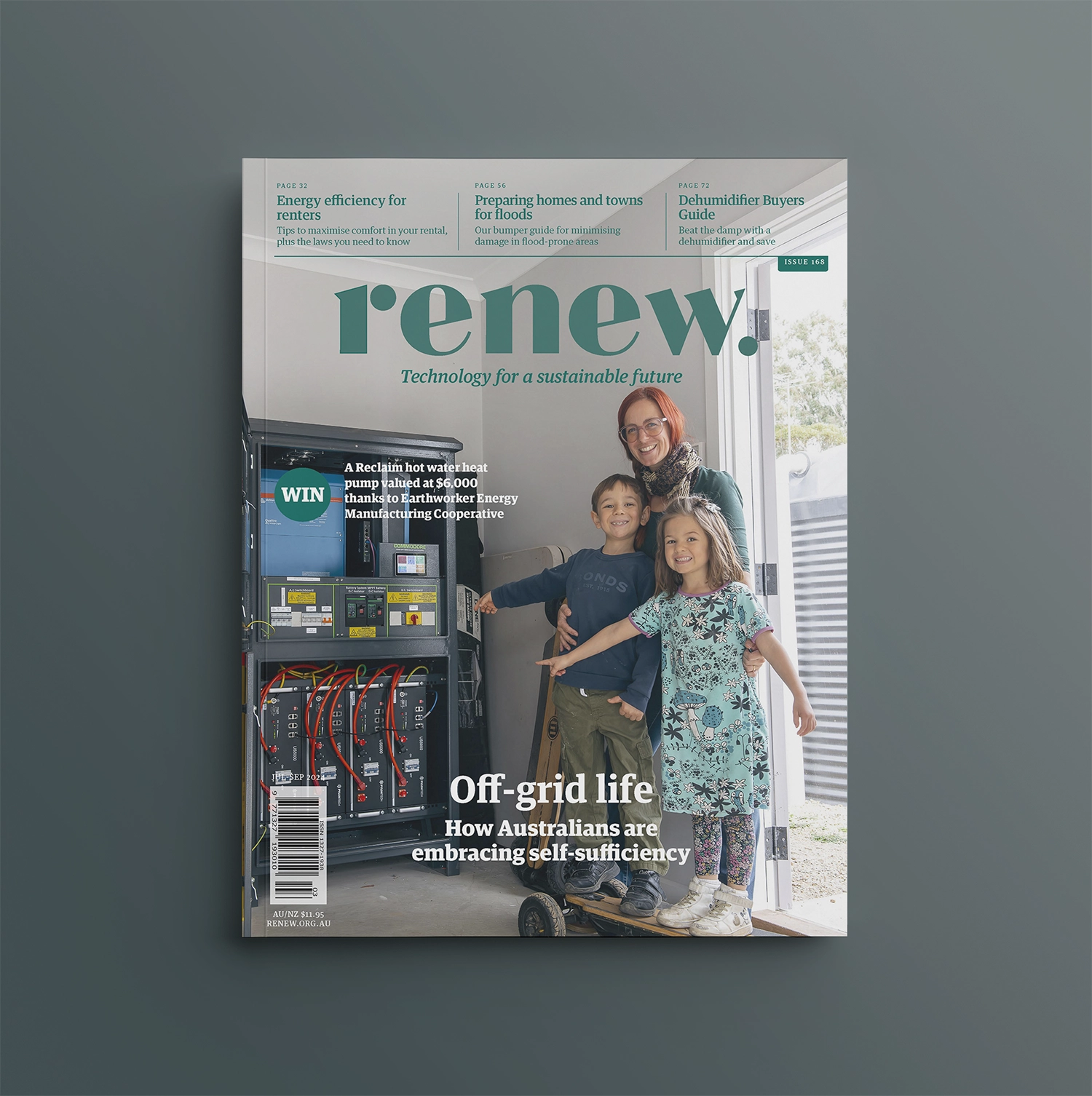Network companies need to lift
Renew is concerned about the response of electricity network companies to the boom in rooftop solar across Australia.
Through its research, the not-for-profit sustainable living organisation has found that many electricity network companies are doing little strategic planning for how increasing distributed generation from solar and other renewable sources will be accommodated within the system.
And there is no consistency across, or even within, companies about how they manage or limit the electricity generated by solar in their networks.
“The increasing penetration of distributed solar is fast approaching some of the technical limits of our grid in some places,” said Damien Moyse, Renew’s policy and research manager.
Increasing levels of solar in a local part of a distribution network can mean that during times of peak generation, solar exports to the grid push voltage upwards – and potentially outside the acceptable range. Exports during these times may also exceed the capacity of local lines and transformers.
“To mitigate this voltage risk, different networks are taking different approaches to manage solar exports – some using extremely blunt measures without any strategic planning or consistency across jurisdictions or distribution zones,” Mr Moyse said.
Renew and its members have encountered a range of approaches from different distribution network companies:
- Outright refusal of grid connection to new solar installation applications
- Approving new solar installation applications but prohibiting any export to the grid
- Limiting exports to the grid to a lower capacity than the grid connection approval (e.g. a 2kW export limit on a 5kW system)
- Limiting the size of the system overall (specifically the inverter capacity) irrespective of the expected volume of export to the grid – even when an export limit is also in place.
“The most concerning of these is where solar grid connection is approved but exports are limited to zero,” Mr Moyse said. “For the typical average household 5kW solar system, this means that around 80% of solar generation is wasted.”
The Australian Energy Market Operator (AEMO) forecasts rooftop solar capacity will increase by 350% in the next 20 years. Renew believes consistent, logical, transparent, and economically and technically justifiable policy is required on export limiting across the National Electricity Market to give solar households confidence and the industry greater certainty over network planning.
Renew has recently applied for funding to lead a research project on these issues. This project would involve:
- Developing and documenting a better understanding of the problem of solar exports and voltage rise from a technical standpoint
- Network companies developing clear and consistent approaches to manage solar exports in such a way as to maximise the benefits of solar to their owners and to the broader network, while minimising adverse impacts of excess exports
- State governments and regulators, NEM agencies and other relevant industry bodies developing clear policy guidance on solar export management to ensure exports deliver maximum benefit to solar owners and the wider community that is consistent with dependable network performance.
- Consumers installing solar have clear information on the basic technical issues associated with voltage rise and what they can expect regarding their grid exports, to best inform their choices.
“Households should not be penalised for the electricity their solar systems are sending to the grid,” Mr Moyse said.
“We need both network companies and state governments to step up and ensure electricity networks can cope with the boom in solar. This is especially important now that some state governments are proactively helping more households install solar.”

